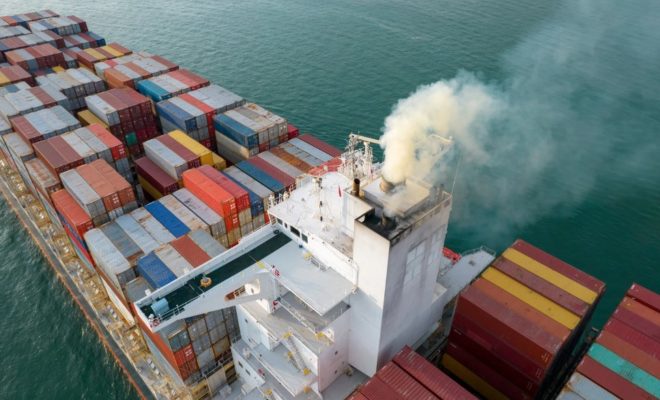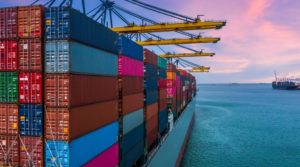
Business
Funding for Zero Emissions Shipping Routes Greenlit
In an era where conversations about the effects of diesel emissions on the environment have become ubiquitous, every industry now contemplates whether there’s a thin line that needs to be treaded between compliance and innovation. In particular, the realm of shipping, a diesel engine-heavy industry, is poised for change, and change is indeed being called for with the recent funding green light for zero-emission shipping routes.
Funding for Zero Emissions Shipping Routes Greenlit
Understanding the Diesel Dilemma

The diesel narrative spans decades, punctuated by economic upsides and, increasingly, environmental downsides. Initially lauded for its fuel efficiency, the proliferation of diesel engines has significantly contributed to air pollution, a major public health concern linked to respiratory diseases and premature deaths. The Dieselgate scandal of 2015, as referred to by Emissions.co.uk, is reminiscent of this ongoing issue.
In the context of maritime trade, the need to address diesel emissions is crucial and urgent. Although shipping is considered the most carbon-efficient mode of transport for moving goods, the sheer volume of trade across the world’s oceans means that the industry remains a substantial contributor to global emissions. Transitioning to zero-emission shipping routes presents a twin opportunity to reduce both local air pollution and global carbon footprints.
Threading Sustainability into International Waters
The Clean Maritime Demonstration Competition’s fifth round aims to accelerate green shipping corridor development in UK ports. With £1.5 million in funding, the focus is on infrastructure mapping, access to green fuels, and decarbonization regulations for zero-emission routes connecting the UK with Denmark, Ireland, the Netherlands, and Norway.
Funded by the £206 million UK SHORE program, initiatives involve match-funding from Ireland and the Netherlands while Denmark and Norway contribute through collaboration facilitation. Competitions for UK-Ireland and UK-Netherlands bids will open in April and June of this year respectively with match funding of £430,000 managed by Innovate UK.
Innovate UK’s Executive Director views these collaborations as crucial for realising green corridors. The British Ports Association highlights the significance of green corridors in shipping’s net-zero transition and port decarbonization efforts. This funding will drive global initiatives towards a sustainable future in maritime transportation.
These funds aren’t just a one-off gesture; they represent the UK’s commitment to scaling zero-emission shipping across its territories. The magnitude and multiplicity of the investment point to an intentional and integrated approach, one that has the potential to set off a domino effect in other maritime hubs.
The Environmental Impact

The transition to zero-emissions shipping is a crucial component of global decarbonization efforts. Currently, the maritime sector accounts for around 3% of global greenhouse gas emissions, with this figure projected to increase unless significant reductions are achieved. The funding for green shipping routes promises a seismic shift, potentially cutting emissions down to zero on certain trade lanes. This means cleaner air for coastal communities, a reduction in respiratory diseases linked to marine pollution, and a substantial contribution to the fight against climate change.
In environmental terms, the funding signifies a commitment to protect sensitive marine ecosystems from the hazardous effects of diesel spillages and pollutants. It outlines a vision where ships, often symbolic of industrialization, become emissaries of a cleaner, greener way forward, highlighting the potential for long-term positive environmental impact.
Economic and Social Impact
Beyond its environmental merits, the funding for zero-emissions shipping routes stands to benefit the UK’s economy and society. The advancement of green shipping technology could yield a competitive advantage for British shipbuilders, port operators, and companies involved in the maritime supply chain. It opens opportunities for job creation and skills development in the burgeoning field of green technologies, thereby supporting a transition to a more sustainable and resilient economy.
From a social perspective, investing in zero-emissions shipping routes aligns with public health and community well-being goals. Replacing pollutant-emitting vessels with their cleaner counterparts improves air quality, particularly around port cities, and reduces public health risks associated with long-term exposure to marine emissions. This has the potential to enhance the quality of life for residents in these areas and signifies a significant stride toward environmental justice.
Ripple Effects through Global Trade Currents

The impact of these zero-emission shipping routes spills beyond the domestic borders of the UK. By setting a precedent, the UK’s commitment could catalyse the adoption of cleaner practices around the world, especially in the EU, with which the UK shares vast maritime trade routes.
Furthermore, the approach to funding and fostering green maritime transport may lead to innovations and partnerships that transcend national boundaries, effectively creating global networks of sustainable shipping.
Final Thoughts
While the landscape of global trade and transport undergoes this monumental shift, individuals and local communities play a crucial role by aligning their choices with the overarching goal of sustainability. The eventual success of zero-emission shipping will not just be measured in nautical miles but in the collective reduction of harmful emissions on a global scale.











